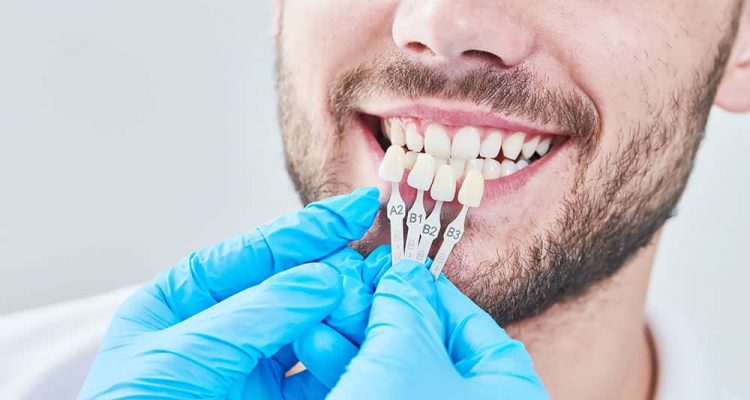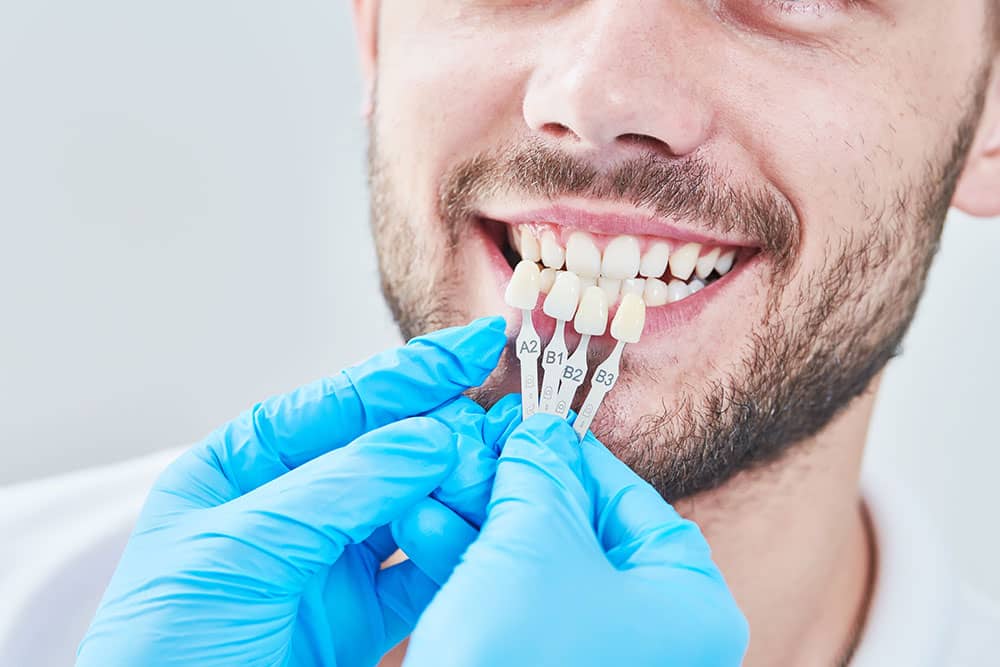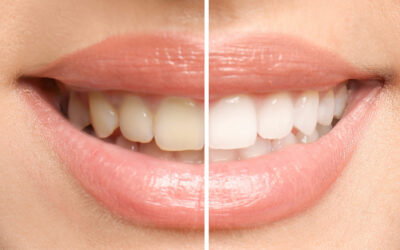If damaged, misshapen, or discoloured teeth are affecting your self-esteem, dental veneers can improve the overall appearance of teeth and give you a boost of confidence.
Veneers are a popular choice among individuals that have not gotten the results they desired through other dental treatments such as retainers, braces, or teeth whitening.
Here, we’ll take an in-depth look at everything there is to know about veneers including what to expect, the cost of veneers, advantages of veneers, the best candidates for veneers, and more.
What Are Veneers?
Dental veneers are thin, tooth-coloured covering or shells that are bonded to the visible parts of your teeth. These overlays cover the front of the tooth and mimic the appearance of natural teeth.
They are customised to match the general shape and colour of your existing teeth.
What Dental Issues Can Veneers Address?
Veneers can provide a long-term solution to a variety of cosmetic dental concerns including:
- Crooked teeth
- Stained or discoloured teeth
- Worn down teeth
- Minor damage
- Overall appearance
- Poorly shaped teeth
- Unevenness
- Decay
- Cracked or chipped teeth
- Stubborn stains or discolouration caused by medications such as tetracycline, excessive fluoride, or root canals
- Gaps in the teeth
What Are the Benefits of Dental Veneers?
Dental veneers offer a variety of advantages such as:
- A natural, healthy tooth appearance
- The gums tolerate porcelain well
- Low maintenance
- Strengthened tooth structure
- Veneers are resistant to staining
- A white colour can be chosen to brighten dark teeth
- They are more conservative in terms of tooth preparation than crowns
Dental veneers that are expertly crafted, customised, and applied will look just like your natural teeth, or better.
How Do Veneers Work?
Teeth veneers function by covering existing teeth with a thin layer of composite or porcelain material.
Veneers are applied by removing 0.3 – 0.5 millimeters off the surface of the selected tooth. This preserves the tooth’s nerve and maintains it’s strength.
Only problematic teeth and potentially some of the neighbouring teeth need to be covered with a veneer.
Your dentist will work with you to make the best recommendation as to how many individual teeth need veneers. The veneers are matched to the shape and colour of the surrounding natural teeth.
You can choose from full veneers that completely cover the tooth or partial veneers that only cover specific areas of discolouration or damage.
Many individuals choose to only veneer their front top or bottom teeth since these areas are the most visible.
What Are the Types of Dental Veneers?
There are several different types of tooth veneers available depending on the issues you want to address. The two main veneer types are porcelain and resin composite veneers.
Each veneer type offers advantages and disadvantages. The best material for you to use for your veneers depends on your desired outcome and budget.
Porcelain veneers are excellent at resisting stains, mimicking the light-reflecting properties of natural teeth, and last for many years. Composite veneers are less expensive and usually require less enamel to be removed but usually have a shorter lifespan than porcelain veneers.
Your dentist will work with you to thoroughly explain the different types of veneers to help you decide which material will give you the best results.
What Is the Treatment Process for Veneers?
The treatment process for veneers typically involves at least four trips to the dentist for porcelain veneers. The first two appointments are planning appointments, the second two are preparing your teeth and fitting the veneers.
Composite resin veneers may be possible to complete in a single trip to your dentist.
Once the tooth has been reshaped, the dentist bonds the composite material to the tooth. A light is then used to harden the material before smoothing the veneer to mimic the appearance of a natural tooth.
Porcelain veneers consist of a consultation where your goals, oral hygiene habits, and oral health are evaluated. Your dentist will come up with a customised treatment plan.
We then digitally design your perfect smile so that we can do a “trial smile” at your next appointment. This allows us to show you what your new teeth would look like before we even commence treatment.
After preparing your teeth a digital scan or impression will be taken of the tooth (or teeth) that require veneers. This impression will be sent off to a lab in order for handcrafted veneers to be created. Temporary veneers can be used during the two weeks it will take to create the veneers.
Once the veneers have been created, your dentist will examine its fit and colour, trim it to achieve the ideal fit, and if you are happy with the appearance permanently cement it to your tooth.
Who Is Not a Good Candidate for Veneers?
Veneers are not typically a good choice if you have:
- Active gum disease or decay
- Insufficient existing enamel
- Weak or unhealthy teeth
What Are the Disadvantages of Dental Veneers?
- They cannot be removed
- Teeth may develop sensitivity to hot or cold foods and drinks since some enamel has been removed
- Veneers may still get chipped or cracked, just like natural teeth
- Veneers are still susceptible to decay
- Removing the enamel means there is a slight potential for underlying damage to the teeth
- A poorly fitted veneer can change the alignment of your bite, resulting in pain while eating or jaw pain
- Veneers eventually need to be replaced
Is It Painful To Get Veneers?
Typically, the process of getting veneers is not painful, although you may experience some gum soreness or sensitivity. Patients are usually back to normal the next day. Severe pain or persistent problems should always be discussed with your dental provider immediately.
Are There Alternatives to Dental Veneers?
If you are unsure if dental veneers are the best option for you, you may want to inquire about cosmetic bonding, teeth whitening, or crowns. We would be happy to discuss any questions you have about veneers and go over the pros and cons of possible alternatives.
How Much Do Veneers Cost?
The price of dental veneers depends on a variety of factors such as the material type used and how many teeth require veneers but range from $300 to $1500 depending on material used.
Am I A Good Candidate For Veneers?
Veneers are ideal for patients who have not seen results from teeth whitening procedures but still wish to achieve a bright, white, healthy looking smile.
Veneers are also a potential solution for individuals dealing with cracks or chips in their teeth as veneers can help protect teeth against further issues.
Does Insurance Cover Veneers?
If you have “Major Dental” as part of your policy then veneers are covered.
How Can I Care For My Veneers?
A consistent, proper daily oral hygiene routine is necessary to maintain your veneers. It is also recommended to wear a mouthguard during contact sports and limit foods or drinks that may stain your teeth.
How Long Do Veneers Last?
Whether a veneer is porcelain or resin composite, veneers will need to be replaced eventually. When properly cared for with a consistent oral health routine and regular dental check-ups, porcelain veneers can last from 10 years up to 25 years. Composite veneers typically last between 4 to 8 years.
Can A Veneer Come Off?
Veneers are permanently bonded to teeth, meaning they cannot come off. However, like natural teeth, they do have limits. Any accident, such as a sports injury, that can break your natural teeth can break your veneers.
What Foods Should I Avoid Eating If I Have Temporary Veneers?
If you are wearing temporary veneers, it is recommended to avoid:
- Crunchy foods such as seeds, hard crusted bread, and nuts
- Sticky foods like sweets, caramel, and taffy
- Hard foods such as candy, ice, and apples
Can Veneers Ruin Teeth?
When placed by an experienced dentist, veneers will not ruin or damage your teeth. In fact, veneers can actually protect healthy teeth against wear and tear from erosion or grinding.
Do You Have Questions About Dental Veneers?
We would be happy to answer any of your questions about dental veneers or set up a complimentary consultation to help you decide if veneers are right for you. Contact us today and our friendly, experienced team will be glad to help you.








